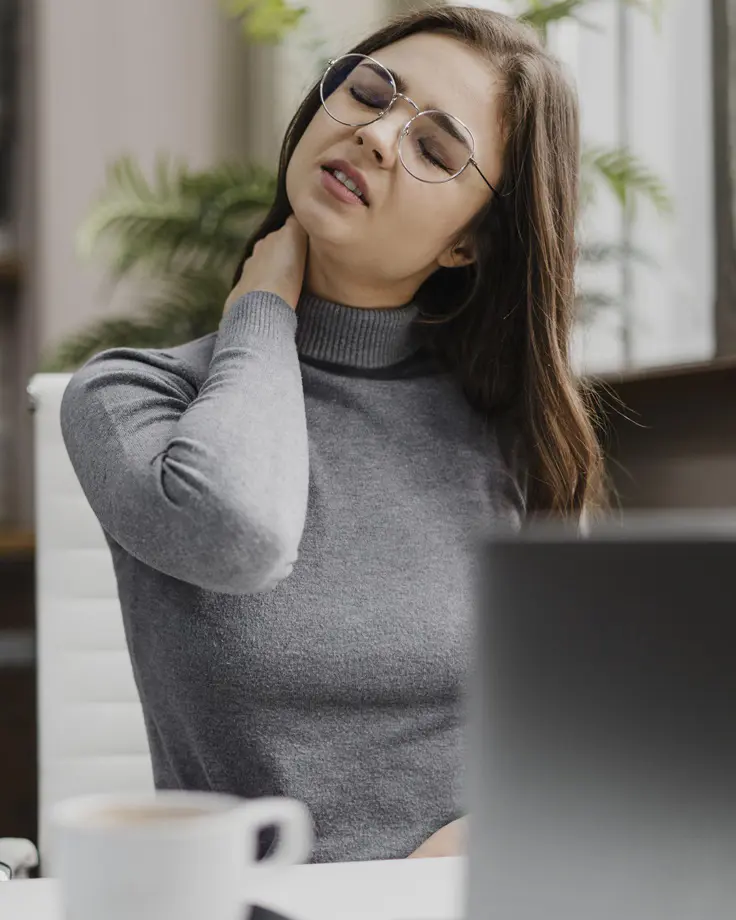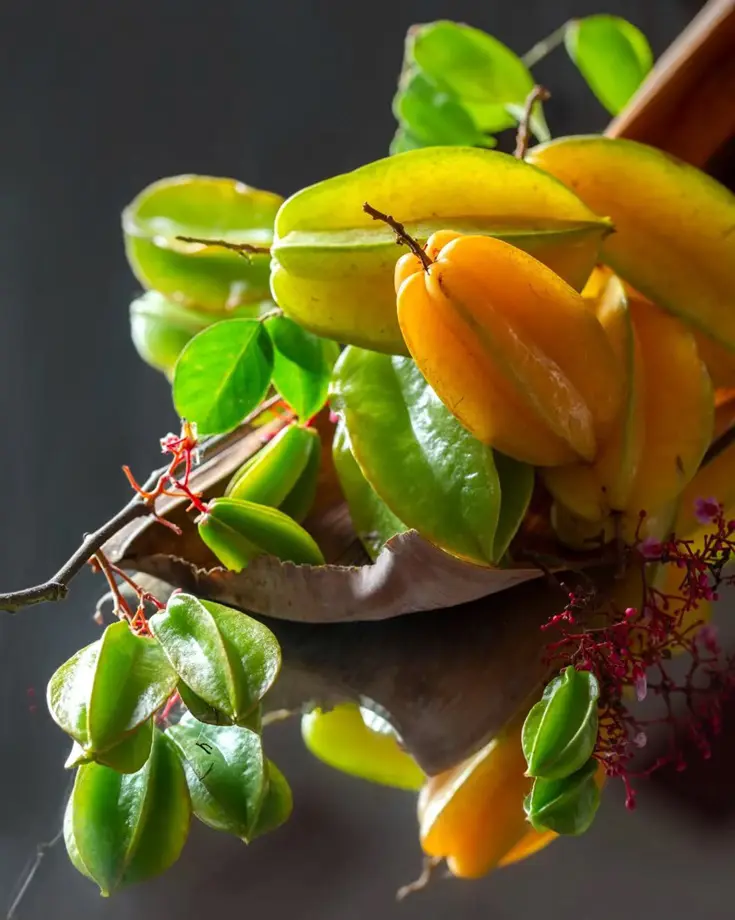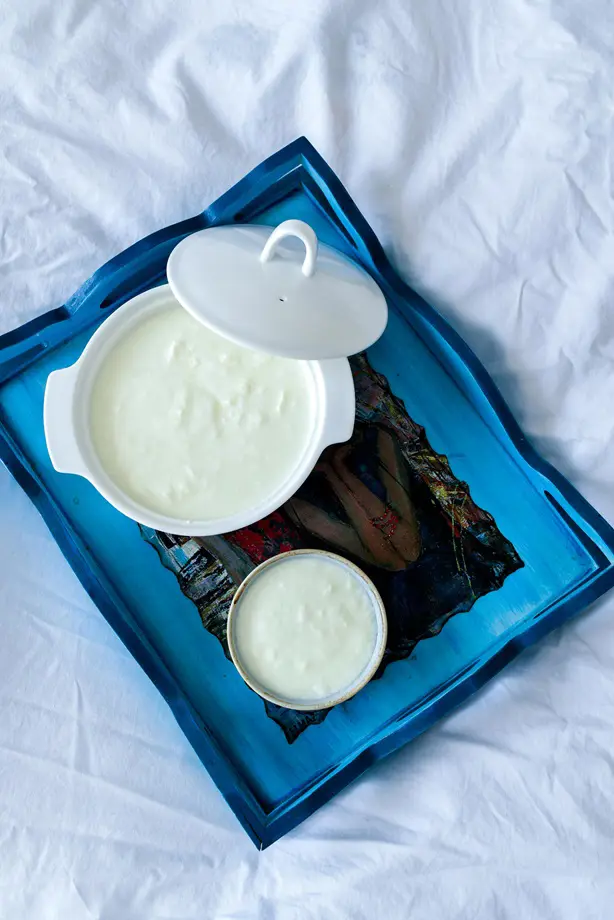How To Remove Blackheads: 12 Ways To Get Rid Of
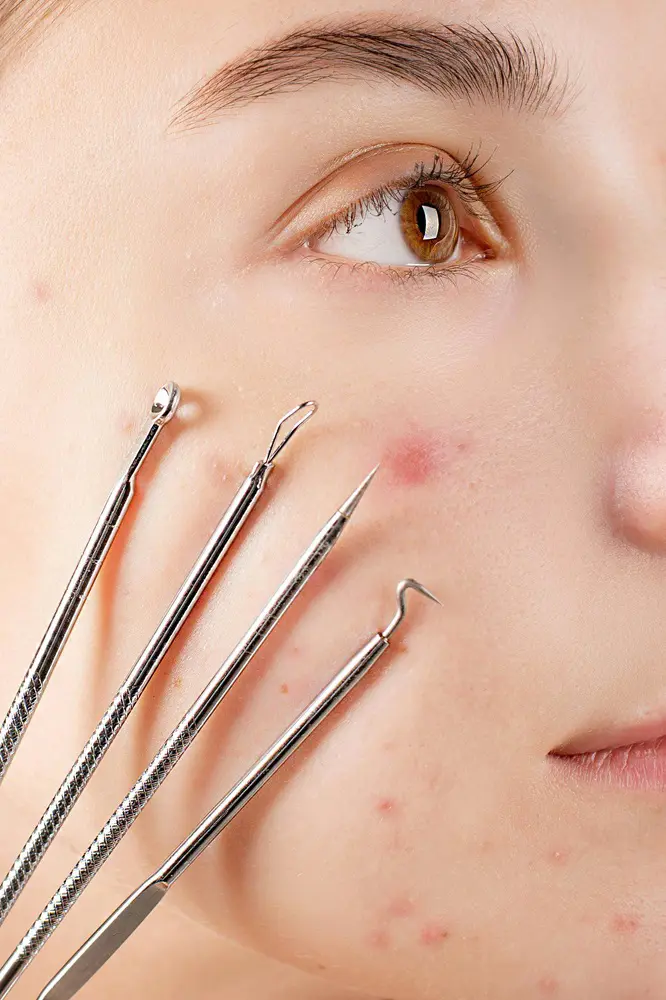
This post may contain affiliate links. If you make a purchase through links on our site, we may earn a commission.
Blackheads are a type of acne. They appear when your skin pores are clogged by oil, dead skin cells, and bacteria. Blackheads can be unsightly and demands immediate removal.
Here, we have brought 12 ways to get rid of blackheads. These solutions are sure to help you achieve clearer, smoother, and healthier-looking skin.
1. Regular Cleansing
Regular cleansing is fundamental for keeping blackheads at bay. Using a gentle, oil-free cleanser, you can wash your face twice a day to remove dirt and excess oil. These dirt, oil and dead skin cells can clog pores in the skin.
The cleansing product is used to massage the skin in a circular motion, focusing more on the area with blackheads. Lukewarm water is used to clear all cleanser residue.
Try Oil Cleansing
Contrary to popular belief, oil cleansing can help to dissolve and lift away oil-based impurities such as makeup, sunscreen, and sebum. This process helps to prevent the formation of blackheads, cleanses the pores and moisturizes the skin.
Castor oil, olive oil, jojoba oil, and grapeseed oil are some popular options, you can choose any that suits your skin. After gently massaging, a warm, damp cloth is used to remove the oil and impurities.
2. Exfoliate Weekly
Exfoliation removes dead skin cells from the surface of skin, helping to prevent the clogging of pores. If unremoved, these dead cells can lead to the formation of whiteheads, blackheads and acne. It's recommended to exfoliate only once or twice a week as over-exfoliating can irritate the skin.
Exfoliating is done by gently massaging the product into the skin in circular motions, similar as cleansing products. After rinsing, it is necessary to immediately apply moisturizer to hydrate the skin.
Types of Exfoliants
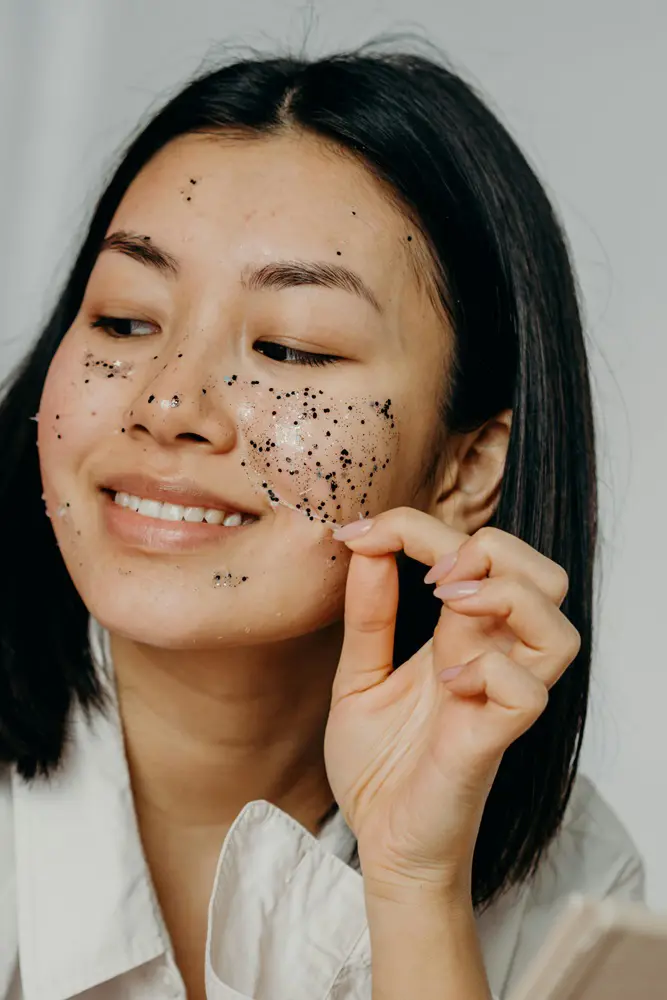
There are two types of exfoliants, namely physical and chemical. Physical exfoliants are composed of tiny particles like sugar, salt, or ground coffee that scrub away dead skin cells.
Chemical exfoliants contain acids like alpha-hydroxy acids (AHAs) or beta-hydroxy acids (BHAs) that can dissolve dead skin cells. Any type of exfoliants can be used, but make sure to choose the one that is suitable for your skin type and sensitivity.
3. Steam Therapy
Steam therapy helps to open up your pores and soften blackheads. This process is also known as facial steaming, in which the face is exposed to warm, moist air. This natural process of opening the pores. helps for deeper cleansing.
All the accumulated impurities, dirt and excess oil can be easily removed once the skin penetrates the skin. If there are deadheads in the skin, the moisture softens them facilitating their extraction process. However, excessive steaming is not recommended as it can dry out skin.
4. Baking Soda Scrub
Baking soda has an abrasive nature, that helps to exfoliate the skin and remove dead skin cells. Due to its high effectiveness, this common household ingredient has been used for a long period of time for removing deadheads. While using baking soda, it is necessary to use it with caution as excessive use irritates the skin.
For the preparation of baking soda scrub, take a small amount of baking soda and mix it with water to form a paste. Massage on the areas with blackheads and rinse it off with lukewarm water.
Not Suitable For Everyone
Baking soda is slightly alkaline while skin's natural pH is slightly acidic. So, the use of baking soda can lead to dryness, irritation, and potential skin damage in individuals with sensitive skin.
If you are an individual with sensitive skin, we recommend you to do patch test on a small area of skin on the beginning. If there are no signs of adverse reactions, you can proceed further with the process.
5. Honey Mask
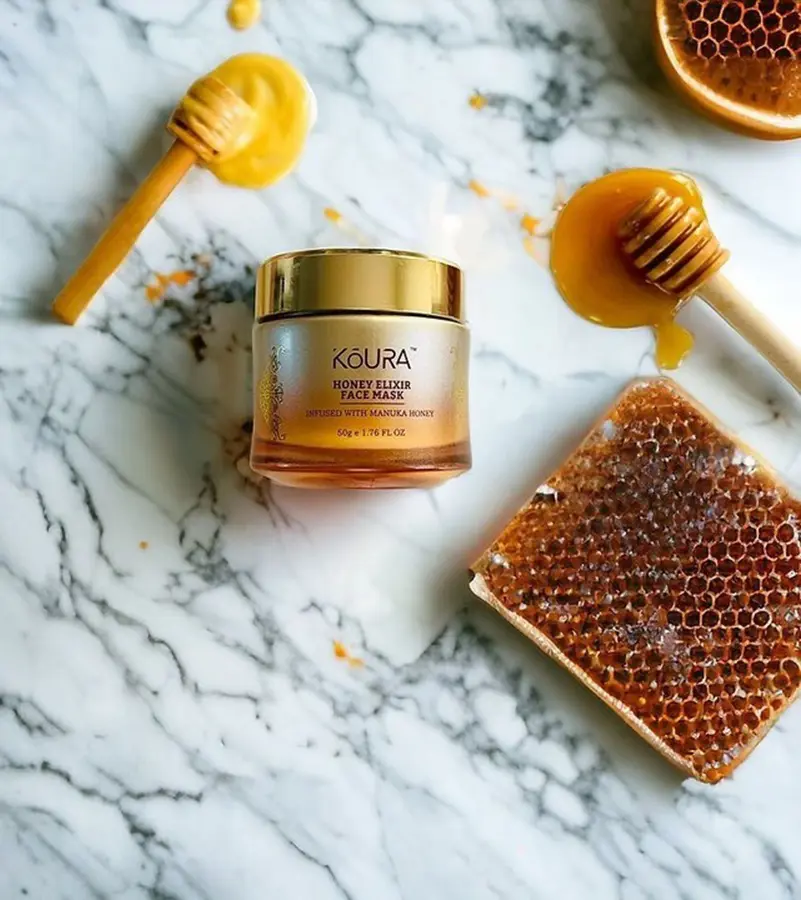
Honey is celebrated for its skincare benefits. It is also a natural humectant, meaning it can help to draw moisture into the skin. Also, it possesses natural antimicrobial and anti-inflammatory properties that is necessary to treat blackheads and other skin issues.
For creating a honey mask, apply a layer of pure honey to your cleansed face. Avoid the eye area and let it rest for 15 to 20 minutes, rinse off with lukewarm water afterward. It is essential to consider the honey's ability to cause allergies, if seen discontinue the use.
Choosing The Right Honey
Best results are observed when raw, unprocessed honey is used. Commercial honey has added sugars or preservatives, so we don't recommend its use.
Also, raw honey retains all-natural properties, including antimicrobial and anti-inflammatory. So opt for honey that has got "raw," "pure," or "organic" labeled.
6. Apple Cider Vinegar Toner
Apple cider vinegar (ACV) when diluted with water can make a homemade skincare solution. Being acidic, similar to the pH of the skin, its use helps to restore the skin's natural acidity. This is crucial in maintaining the overall health of the skin.
The acetic acid exfoliates the skin, ensuring the removal of the dead skin cells that can clog pores and contribute to blackhead formation. Moreover, the healthy barrier created by it prevents any acne-causing bacteria from invading the skin.
Process to Make Apple Cider Vinegar Toner
You can make ACV toner at home. For the preparation, mix one part apple cider vinegar with two parts of distilled water. If your skin reacts, you can adjust the ratio accordingly. For further use, store the toner in a clean glass bottle. Before each use, shake the mix well.
How to Use Apple Cider Vinegar Toner
Cleanse your face prior to the application of the toner. Doing this helps to remove any kind of dirt or oil. On a cotton pad, put some drops of the ACV toner and gently swipe it across your skin.
Make sure to avoid contact with the eyes. Once the toner dries, apply moisturizer. It's recommended to start with using it every other day and gradually increase frequency as your skin adjusts.
7. Apply Pore Strips
Pore strips are adhesive patches designed to remove any kind of impurities, including blackheads, from the pores on your skin. These strips adhere to the skin and bring along all the impurities when removed from the application area. Pore strips are generally applied to areas prone to blackheads, such as the nose, forehead, and chin.
Applying the Pore Strip
First, cleanse your face with a gentle cleanser. A pore strip works best when you open the pores on the skin before its use, this can be achieved by applying a warm, damp cloth to your face or by taking a warm shower.
Once you ensure your face is clean and the pores are open, peel the backing off the pore strip carefully and apply it directly to the area with blackheads. Gently press down the strip so it can adhere well to the skin.
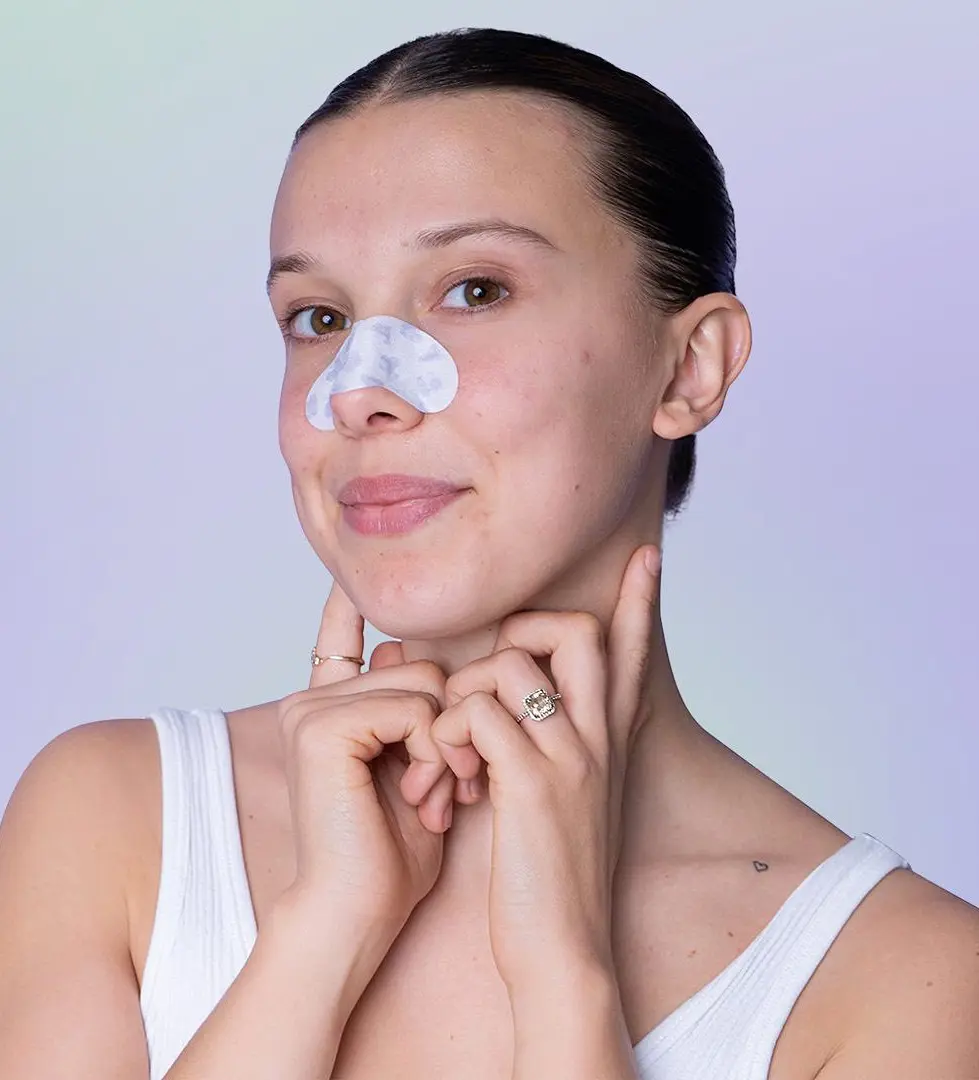
Removing the Pore Strip
Allow the strips to dry completely, it generally takes 10 to 15 minutes. As the strip dries, it bonds with the impurities in your skin and becomes stiff and hard.
As the strip completely hardens, carefully peel it off from one end. Pull the strip slowly, the strip should come off in one piece with which comes the blackheads and debris that were trapped in your pores. After complete removal, wash your face with lukewarm water and apply moisturizer.
Aftercare
Don't reapply strips immediately, doing so can only irritate your skin. Pore strips are typically designed for occasional use, not daily application. Use moisturizer after each use to prevent dryness.
8. Use Clay Masks
Clay masks are a type of skincare products. Various types of clay such as bentonite, kaolin, and fuller's earth are used in their formulation. These clays are renowned for their ability to absorb excess oil, dirt, and impurities from the skin, making the product beneficial in avoiding blackheads.
The clay does not only soak up sebum and toxins but also delivers essential minerals, making skin radiant. Some of the clay masks also have gentle exfoliating properties that help to remove dead skin cells.
How To Apply
Prepare the mask as per instructions on the product then apply the smooth clay mix on your face with the help of a brush. Evenly apply the clay mask to the whole face, avoiding the eyes and hairline.
After 10-15 minutes, the mask will dry and harden as it absorbs excess oil and impurities. Rinse the dried mask off using lukewarm water. Make sure to use circular motions to help exfoliate the skin as you remove the mask.
9. Try Retinoid Products
Retinoid products are derivatives of vitamin A. These skincare products are widely used all over the world for their ability to enhance skin cell turnover(reducing aging) and improve overall skin texture.
When it comes to blackheads, retinoids help to prevent clogged pores and reduce the formation of comedones. Retinoids also promote the shedding of dead skin cells and unclogging pores, which in turn diminishes blackheads and prevents new ones from forming.
How To Use
If you are new to retinoids, it's best to start with a product that contains a lower concentration of retinoids. Retinol can be a good option before progressing to stronger ones.
As they are sensitive to sunlight, apply a pea-sized amount of the retinoid product to affected areas only at night. Use a gentle moisturizer after each application to reduce the risk of dryness or flakiness, and during the daytime use sunscreen as retinoids can make your skin more sensitive to the sun.
10. Different Chemical Products
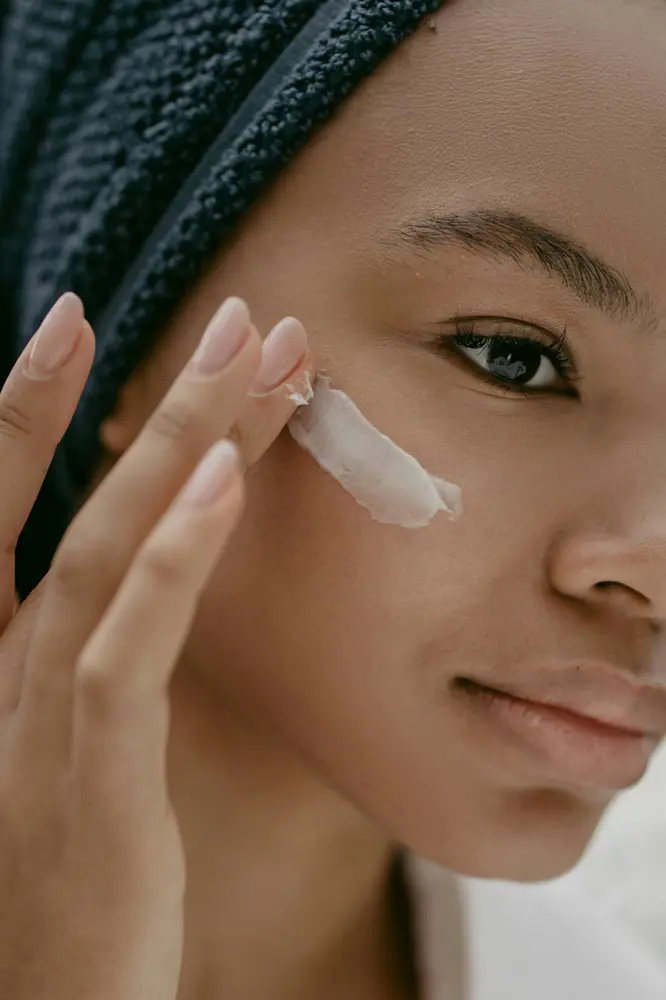
If natural products are not working for you or in the cases you want immediate removal of blackheads, it's a good option to switch to chemical ones. The use of chemical facial care products has significantly increased in recent years due to their effectiveness. Niacinamide, salicylic acid, and benzoyl peroxide are some chemical alternatives highly effective in treating skin concerns.
Niacinamide
Niacinamide, also known as vitamin B3, is a versatile skincare ingredient. It can help in regulating sebum production, the primary cause behind blackhead formation. As the oiliness is reduced, the pores don't clog.
Additionally, niacinamide has anti-inflammatory properties. Irritated skin that results from deadheads can hence be successfully minimized. While niacinamide won't magically disappear blackheads, it can reduce the likelihood of new ones forming.
Salicylic Acid
Salicylic acid is a beta-hydroxy acid (BHA) known for its effectiveness in treating blackheads. This chemical excels at penetrating pores. It also helps to dissolve the buildup of dead skin cells and oil that leads to the formation of blackheads.
This chemical exfoliant removes the top layer of dead skin cells and also unclogs the pores. If your skin is prone to blackheads, you can use salicylic acid regularly to prevent the formation of new blackheads. As it can be drying, it's essential to follow up with a moisturizer.
Benzoyl Peroxide
Benzoyl peroxide is primarily used to treat inflammatory acne such as pimples. Although it is not as effective as salicylic acid for blackheads, it can still play a role in preventing their formation.
This chemical works by killing acne-causing bacteria. This property prevents pores from becoming clogged and developing into blackheads. As higher doses can be irritating, it's always better to start off with low doses.
11. Use a Blackhead Extractor Tool
A blackhead extractor tool is a specialized small metal implement that has different-sized loops and pointed ends. The loops help out to extract blackheads while the pointed ends are for whiteheads.
To use these tools, you need to prepare your skin first. Cleanse your face, disinfect the tools with alcohol and place the loop of the disinfected extractor tool over the blackhead. It is important to avoid pressing too hard, as it can cause skin irritation or damage.
12. Charcoal Masks
Charcoal masks are an excellent way to remove blackheads effectively. These masks work by drawing out impurities, dirt, and excess oil from your pores, which helps in clearing blackheads. Apply a charcoal mask to your face, focusing on areas prone to blackheads such as the nose, forehead, and chin.
Leave the mask on for the recommended time, usually around 10-15 minutes, until it fully dries. Once dry, peel off the mask gently, and you'll notice the blackheads being removed along with the mask. For best results, use a charcoal mask once a week as part of your skincare routine.
At Last
All the solutions listed above are for immediate results. To prevent the appearance of blackheads from beginning, it is essential to focus on a balanced diet. Diets that have all the necessary ingredients for healthy skin contain limited processed foods, sugary drinks, proper hydration and all essential vitamins and minerals.
If your blackheads are not going away, consider seeking professional help. Dermatologists, skin care specialists, can accurately identify the underlying cause of your blackheads and provide you with a personalized treatment plan for your particular cause.
Recent posts
Lifestyle
Lifestyle
20+ At Home Remedies For Nausea
Nausea can affect any of us, any time of the day. Though nausea has unexpected timing, fortunately, there are several natural and simple home remedies that are effective in healing the discomfort. From foods that help calm the stomach to breathing te...
Lifestyle
How to Get Rid of Neck Pain: 10 Home Remedies To Fix Stiff Neck
Neck pain is a common issue of today, affecting more than one-third population of the US. The common causes that often lead to stiff neck include sleeping in an awkward position that involves straining of the neck, sitting in a bad posture for long p...
Lifestyle
10 Home Remedies For Loose Motion and Diarrhea
When in tough times, due to issues like loose motion or diarrhea, it would be reassuring for you to know that there are remedies, that also in your own pantry! Whatever the cause may be, be it an infection, food intolerance, or stress, these ingredie...
Lifestyle
How To Eat A Star Fruit
Star fruit is a tropical fruit known for its unique star-like appearance. The fruit can be enjoyed simply, on its own or by adding it on recipes where its extra burst of color and sweet-tart taste can blend well with other ingredients. Whichever way ...
Lifestyle
Is Yogurt Good For You?
Yogurt is a dairy product, a nutrient-packed food. It is often hailed as a health food and there are good reasons for this. If we look into the nutrients present in yogurt; it has numerous of them essential for functioning of our body. In this articl...
Lifestyle
Is Vegan Diet Actually Healthy?
A vegan diet is considered healthy but not most of the time. As all vegan foods have many beneficial nutrients, they also lack some which often sparks the debate. Without animal products, a vegan diet can be believed to have significant health benefi...

